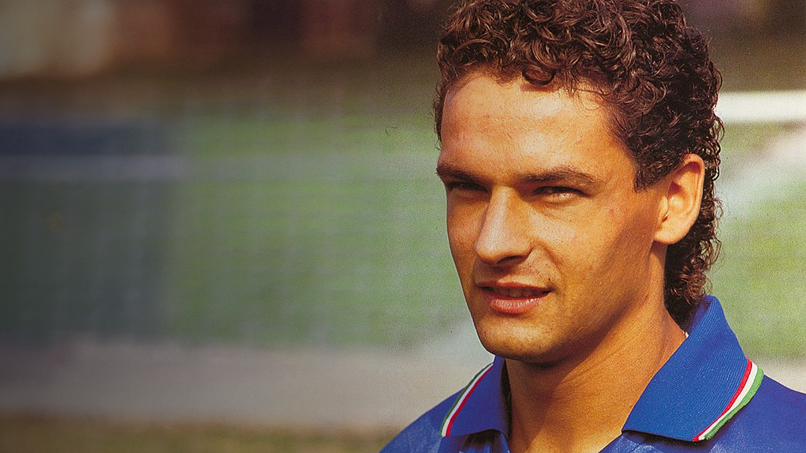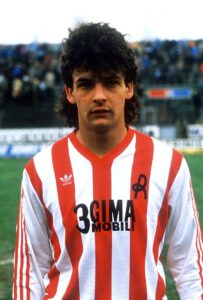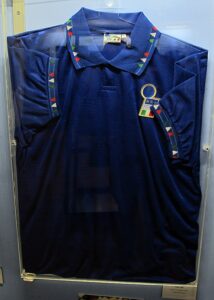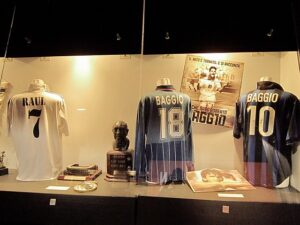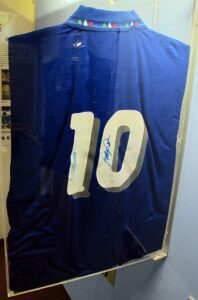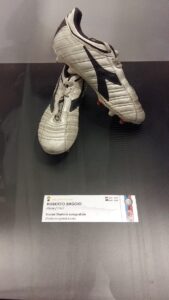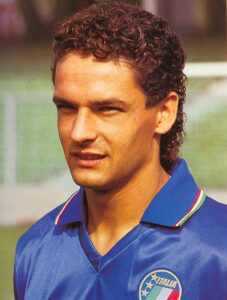Roberto Baggio – The Divine Ponytail and a Legacy of Brilliance
A Footballing Genius Defined by Skill, Grace, and Resilience
Roberto Baggio is more than just one of Italy’s greatest footballers—he is an icon of beauty in football, a player whose talent, vision, and elegance captivated fans worldwide. Known for his creativity, technical brilliance, and ability to score spectacular goals, Baggio left an indelible mark on the game.
Yet, beyond his footballing genius, Baggio’s story is also one of resilience. Injuries, controversies, and heartbreak never deterred him. Instead, they shaped his legacy, making him one of the most beloved figures in the sport’s history.
Early Life and Rise to Stardom
Born on February 18, 1967, in Caldogno, Italy, Roberto Baggio’s journey to greatness began in the small football fields of his hometown. His natural ability was evident from a young age, and at 15 years old, he was signed by Vicenza, where he quickly emerged as one of Italy’s most exciting young talents.
Baggio’s breakthrough season in 1984-85 saw him score 12 goals in 29 appearances, attracting attention from Fiorentina, who secured his signature in 1985. However, before he could even make his debut for Fiorentina, tragedy struck. A severe knee injury tore his cruciate ligaments, threatening to end his career before it had truly begun.
Doctors warned that he might never play again, but Baggio, driven by his love for football, endured a grueling two-year rehabilitation and returned stronger than ever.
Fiorentina – The Beginning of a Legend
Baggio finally made his Serie A debut for Fiorentina in 1986, and over the next four years, he became the heart and soul of the team. His dribbling, vision, and deadly finishing made him one of the most exciting players in Italy.
Fiorentina fans adored him, and even when the club struggled, Baggio’s brilliance was undeniable. His defining moment came in a 1989 match against Diego Maradona’s Napoli, where he single-handedly dismantled the defending champions, scoring a stunning solo goal after running from his own half.
By 1990, he was Italy’s hottest prospect, and despite protests from Fiorentina supporters, the club sold him to Juventus for a then-world record fee of €8 million.
Juventus and Ballon d’Or Glory
Moving to Juventus in 1990, Baggio had the pressure of justifying his massive transfer fee. He quickly silenced critics, leading Juve’s attack with a level of finesse rarely seen.
His five seasons in Turin saw him win:
- Serie A (1994-95)
- Coppa Italia (1994-95)
- UEFA Cup (1992-93)
His performances in 1993 were so exceptional that he won the Ballon d’Or, cementing his place as the world’s best player. That year, he led Juventus to UEFA Cup victory, scoring twice in the final.
Baggio’s ability to score from free kicks, dribble past entire defenses, and assist teammates with perfect through balls made him a complete attacker. However, despite his success, Juventus opted to move forward with a younger generation, leading to his controversial departure in 1995.
World Cup Glory and Heartbreak (1990-1994)
Baggio’s career with the Italian national team was filled with both brilliance and heartbreak.
At the 1990 World Cup, he introduced himself to the world with a stunning goal against Czechoslovakia, dribbling past multiple defenders before calmly finishing.
However, it was the 1994 World Cup in the USA that defined Baggio’s international career. Despite struggling in the group stages, he almost single-handedly carried Italy to the final with match-winning performances:
- Two goals vs Nigeria (Round of 16)
- Two goals vs Spain (Quarter-final)
- Decisive goal vs Bulgaria (Semi-final)
By the time Italy reached the World Cup final against Brazil, Baggio was exhausted and playing through injury. The match ended in a penalty shootout, and in a cruel twist of fate, his penalty sailed over the bar—handing Brazil the trophy.
The image of Baggio standing alone, devastated, remains one of football’s most iconic moments. Yet, despite that miss, he was Italy’s hero throughout the tournament.
AC Milan, Inter Milan, and Redemption
After Juventus, Baggio moved to AC Milan, where he won another Serie A title in 1995-96.
His later years saw him play for Bologna, where he revived his career with 22 goals in a single season, leading to his inclusion in the 1998 World Cup squad.
A final move to Inter Milan followed, before he closed out his career at Brescia, where he became the club’s greatest player, scoring 45 goals in 95 matches.
Despite playing in smaller clubs during his final years, Baggio remained a fan favorite, with his performances still reflecting the genius that defined his career.
Why Roberto Baggio is a Football Legend
- Ballon d’Or Winner (1993) – Recognized as the best player in the world.
- Three-time Serie A Champion – Won league titles with Juventus and AC Milan.
- 1994 World Cup Hero – Single-handedly carried Italy to the final.
- One of Italy’s Greatest Playmakers – Scored 318 career goals.
- A Player of Unmatched Elegance – His playing style remains legendary.
Baggio’s influence extends beyond statistics. He played football with joy, artistry, and humility, earning respect from teammates, opponents, and fans alike.
Famous Quotes About Baggio
Michel Platini once said:
“Baggio was a divine artist, a player with something extra that cannot be taught.”
Baggio himself reflected on his career, saying:
“You can lose a game, a final, or a trophy. But if you play with dignity, you never truly lose.”
Collecting Roberto Baggio Memorabilia
For collectors, Roberto Baggio’s signed shirts, boots, and photos are among the most valuable in Italian football. His impact on the game ensures that memorabilia linked to his career remains highly sought after.
If you’re looking for authentic football signed memorabilia, visit X Memorabilia.
Final Thoughts
Few players in history have combined skill, intelligence, and humility like Roberto Baggio. His career was filled with spectacular goals, dazzling dribbles, and unforgettable moments.
Though his 1994 penalty miss remains one of football’s most painful memories, his legacy is one of triumph, not failure. He remains one of the most beloved footballers of all time, a true artist of the game, and a player whose name will forever be associated with beauty in football.
